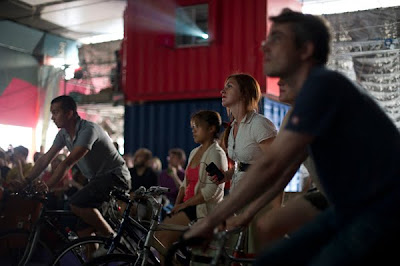by Annalisa Tancredi
There’s nothing better than a long-shot by Sergio Leone to represent the endless beauty of wild nature, or a scene of Into the wild to describe the intimate and primitive connection between man and nature. The cinematographic language is perfect to tell so many elements about relationship between man and environment and that’s why during 69th Venice film festival will make its debut The Green Drop Award, born to foster greater environmental awareness among authors and spectators. The Green Drop Award is organized by Green Cross Italy and Venice City and is a prize for the best movie that “realize ecology values and sustainable development, with attention to the Planet and its ecosystem safeguards for future generations, to lifestyle and cooperation between peoples”. An excellent jury, composed by the director Ermanno Olmi (president), the actress Claudia Cardinale (godmother), the director Ugo Gregoretti, the producer Franco Iseppi, the actress Anita Kravos and the environmental educator Caterina Dezuanni, will meet on Friday 7th September to nominate the winner among 18 movies in competition. The best movie will receive the prize, a green drop glass made with Venetian glass by master Simone Cedenese, in which is preserved an handful of soil symbolizing “rich soil in which future generations will reconcile development and ecology”. Each year the soil will come from a different country and for 2012 edition it has been chosen Brazil, where Rio+20 Onu Conference took place.
"Cinema is entertainment, but like all fairy tales or the great literature, watching a movie or reading a novel is an identification of ourselves with the stories characters. Highlight the ecological values of a movie means, in the middle of the ecological crisis and climate change, to teach something to the audience without rhetoric instruments - said Marco Gisotti, director of the Green Drop Award and author of the documentary "Cinema & Environment" on RAI History (Science Dixit Cycle). And he said, about the influence of the cinema on the collective imagination: "Movies have a strong evocative power. I’m thinking about 70’s and the effect of a movie like "The China Syndrome" which exposed the risks of nuclear power. It was prophetic because a week after the release of the film happens the accident at the nuclear power plant in Three Mile Island. Another example is given by the movie "Into the wild" or by Ermanno Olmi’s films, or Werner Herzog and even by "Avatar", perhaps the most popular eco-cinema in recent years. Watching films like those ones not only means to have a good movie, but to learn something more about nature, ecology and cooperation between people".
So this year there’s a long green carpet at the Venice Film Festival ready to welcome the greenest film. Finally, to use the words of Mikhail Gorbachev - Nobel Peace Prize and founder of Green Cross International - "The creation of this award will help directors, writers and actors to become ambassadors of a message of hope for the future of all humanity ".














